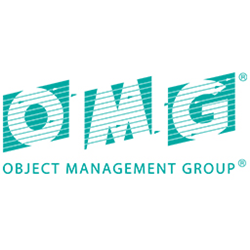
https://www.omg.org/
BOSTON (PRWEB)
January 20, 2021
Financial Instruments Global Identifier® (FIGI®) is an open standard for the issuance of unique identifiers that can be assigned to financial instruments including common stock, options, derivatives, futures, corporate and government bonds, municipals, currencies, and mortgage products.
Kaiko has been approved as Certified Provider of FIGI for crypto assets, working under the auspices of the Object Management Group® (OMG®) and alongside Bloomberg LP in their role as Registration Agent, to expand the open data standard to blockchain-based digital assets.
Many market information providers, securities exchanges and third-party applications have adopted the FIGI standard in their market data feeds. Doing so allows their customers to have a coherent view of market data across multiple providers and applications, so that customers are not obligated to build their own mapping systems to match up disparate instrument identifiers.
What are Crypto FIGIs
With the continuing growth in the creation, use, and trade of digital assets, there is a need to bring greater standardization to the sector. FIGIs for crypto assets will enable interoperability, transparency, and greater efficiency between industry participants such as digital asset exchanges, data aggregators, custodians of digital assets, service providers, and regulators.
Importantly, the FIGI standard will be compatible with and complement alternative standards. Each instrument assigned a FIGI may also be tied to an International Securities Identification Number (ISIN) or other identifiers, such as ISO’s future Digital Transaction Identifier (DTI).
Kaiko is uniquely positioned to take on the role of Certified Provider for Crypto FIGIs thanks to its seven years of practical experience in the collection, classification, and standardization of cryptocurrency tokens. Kaiko currently provides the largest public database of instrument reference data in the industry. Over the past six years, Kaiko has manually standardized all past and active trading crypto instruments in a database by conducting external research on individual tokens to ensure that their standardization is correct and unique. Kaiko’s Reference Data API and public user interface (instruments.kaiko.com) provides unique token identifiers and unique identifiers for all instruments in their collection.
Ambre Soubiran, CEO at Kaiko, said, “Early in our data collection, we recognized a lack of standards in token identifiers across a multitude of exchanges. Many clients who consumed our market data pointed out the difficulties in accessing data for the same token trading on different exchanges. We then began the extensive, and at times, painstaking task of individually classifying each token as it was added to our collection. Kaiko’s mission is to raise awareness and understanding of crypto asset markets and empower industry participants with actionable, reliable, and transparent data and content, which reduces investor risk and improves the overall quality of crypto markets. We are delighted to make our hard work useful by working with Bloomberg as Certified Provider for the FIGI standard. We believe we can provide a superior token identification database by building on the work we have already completed in this field for our own API and database management.”
Richard Beatch, Member of the Board of Directors at the Object Management Group, said, “FIGIs for crypto-assets brings substantial benefits to participants in the sector and we expect to see it used over time by all key stakeholders and market participants. Kaiko brings significant expertise and technical experience in providing a fit-for-purpose instrument explorer and corresponding identifiers for the cryptocurrency market.”
Richard Robinson, Chief Strategist, Open Data and Standards at Bloomberg LP, said, “Data quality is at the core of actionable and accurate information. Open Symbology’s metadata driven approach, supported by a rigorously applied ontology, provides a powerful toolset for accessing, sharing, tracking, and managing your data, data quality, and implementing proper governance.”
OMG’s Financial Domain Task Force (FDTF) promotes the notion that data and its semantics are the DNA of financial services; data and information are critical for managing and developing innovative strategies, best practices, and standards that will transform financial data into “smart data” of higher business value.
The FIGI for Crypto Assets standard is expected in 2021. A webinar, Expansion of FIGI® (Financial Instruments Global Identifier®) for Crypto Assets,” will air on February 8, 2021 at 11am ET and on demand following.
About Kaiko
Founded in 2014, Kaiko is the leading market data provider in the blockchain-based digital assets industry, providing institutional investors with enterprise-grade market data infrastructure. Headquartered in Paris, Kaiko also has offices in NYC and Tokyo. For the past 6 years, Kaiko has been collecting, normalizing, storing, and distributing crypto assets data to market participants via a suite of APIs and data products. Kaiko currently provides the largest public database of instrument reference data in the industry, collected from over 85 cryptocurrency exchanges, comprising more than 3,800 individual tokens and 50,000+ instruments.
About Bloomberg LP
Bloomberg LP is the global business and financial information leader, delivering data through innovative technology, quickly and accurately, is at the core of Bloomberg’s services. In 2009, Bloomberg released an Open Symbology product: The Financial Instruments Global Identifier (FIGI), a system for identifying financial instruments across asset classes.
About Object Management Group
The Object Management Group® (OMG®) is an international, open membership, not-for-profit technology standards consortium with representation from government, industry, and academia. OMG Task Forces develop enterprise integration standards for a wide range of technologies and an even wider range of industries. OMG’s modeling standards enable powerful visual design, execution and maintenance of software and other processes. Visit http://www.omg.org for more information.
Note to editors: Object Management Group and OMG are registered trademarks of the Object Management Group. For a listing of all OMG trademarks, visit https://www.omg.org/legal/tm_list.htm. All other trademarks are the property of their respective owners.

